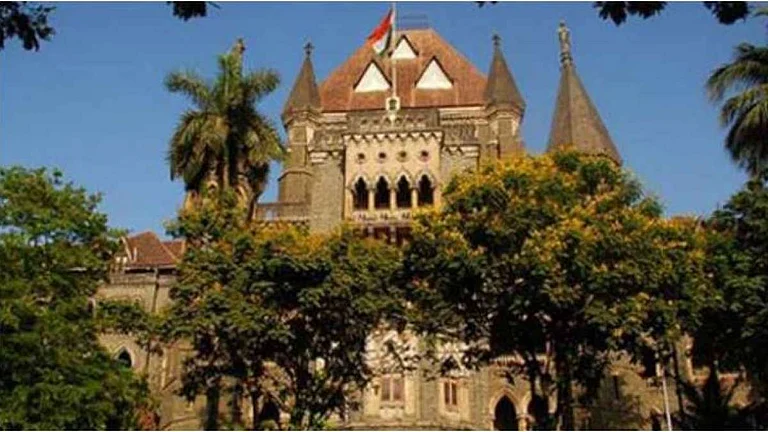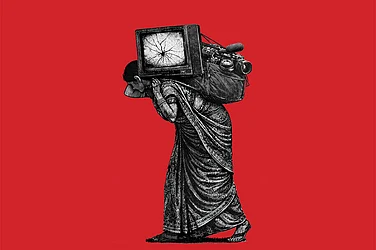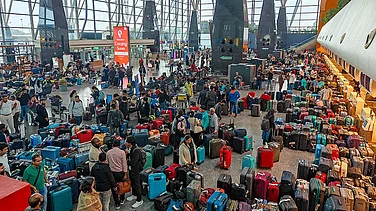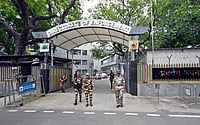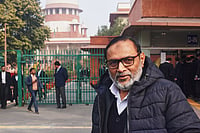
Summary of this article
The SC on September 15 passed its interim order in the hotly contested Waqf Amendment Act challenge.
The court refused to stay the entire act, stating that this was to be done only in the rarest of cases.
CJI Gavai, while delivering the order, said that certain provisions would be stayed as they led to an arbitrary exercise of power.
On September 15, 2025, the Indian Supreme Court heard writ challenges to the Waqf (Amendment) Act, 2025, a law that had sparked significant debate since its passage earlier in the year.
The bench led by Chief Justice B.R. Gavai rose to deliver its order, catching many unprepared. The court had said it would announce the order after hearing matters in the Special Bench, so most expected the pronouncement later in the day. But at 10:45 am, Chief Justice BR Gavai and Justice Augustine George Masih issued their interim order staying provisions that the apex court said could result in an “arbitrary” exercise of power.
“In the totality of the circumstances, we do not find that any ground is made out for staying the operation of the impugned Act in its entirety,” the court began, adding that this would only happen in the “rarest of rare cases.”
Yet the bench did not give the Act a blanket endorsement. In its 126-page order, the court highlighted certain provisions of the Amendment Act as concerning, which could lead to the arbitrary exercise of power. This includes the requirement for Muslims to prove they had been practising for over five years to avail of the Waqf.
“There is no set mechanism; this could lead to arbitrariness, which must not be permitted,” said the CJI.
The bench also stated that the Waqf Act had granted district collectors the power to decide matters related to citizens’ rights, which could not be permitted.
"The Collector cannot be permitted to adjudicate the rights of personal citizens, and this will violate the separation of powers. Until adjudication occurs before the tribunal, no third-party rights can be created against any party. The provision dealing with such powers to the Collector shall remain stayed," the court said.
A Law Shrouded in Controversy
Religious endowments in India’s Muslim community are governed by the Waqf Act, 1995. Over the years, waqf boards have been accused of corruption and encroachment, issues that several governments have tried to tackle through legal reform. The Union government stated that the 2025 amendments were a “clean-up”: tightening the endowment rules would curb misuse and bring waqf property management in line with the “national interest.”
Opposition parties and Muslim organisations had argued otherwise. Senior counsel Kapil Sibal and others opposed the amendment, saying it was an attack on religious autonomy. The Bill’s introduction and passage led to mass protests in Hyderabad, Lucknow, and Delhi. Challenges to the law in the SC came on the same day the Bill received presidential assent. Did the amendments violate Articles 25 and 26, guaranteeing freedom of religion and management of religious institutions? Did they encroach on minority rights under Article 30? Or were they legitimate regulatory measures under Parliament’s powers?
“Waqf by User”
The deletion of “waqf by user”, which allowed for the longstanding public use of a site for religious purposes to create a waqf without any other formalities, was the cause of much of the controversy. Sibal and others argued that the deletion would lead to the disenfranchisement of the Muslim communities who had been using certain shrines and mosques for generations as waqf by user.
The Court was not convinced. “If for 30 long years, the Mutawallis had chosen not to make an application for registration, they cannot be heard to say that the provision which now requires the application to be accompanied by a copy of the waqf deed is arbitrary.”
The court added that due to a Waqf by the user, there had been significant encroachments on government properties. “If the legislature, in 2025, finds that on account of the concept of ‘Waqf by User’, huge government properties have been encroached upon… the said amendment, prima facie, cannot be said to be arbitrary,” the court said.
Government Properties and the Question of Arbitrariness
Section 3C of the 2025 Act allows state governments to correct records if government land was wrongly classified as waqf property.
The Supreme Court found Section 3C, which allows state governments to direct waqf record corrections over government land, to be arbitrary and provisionally stayed its application.
Caretakers of the waqf breathed a sigh of relief. But, the Court also added a restriction: “Pending such a determination by the Tribunal, the Mutawallis of such of the waqfs do not create any third-party rights in respect of such properties,” it said.
Currently, the State cannot remove waqf claims from records without consultation. However, caretakers, too, cannot cordon off any land until the requisite disputes surrounding it are settled by a tribunal.
Protected Monuments and Religious Rights
Section 3D, which bars the Waqf boards from declaring protected monuments as waqf, was another contentious provision. The petitioners had argued that this curtailed worship at historic mosques and dargahs, which are under the purview of the Archaeological Survey of India. The Court dismissed the claim: “We… are of the considered view that the said argument does not hold water,” it said.
On Limitation and Evacuee Properties
Prior to the 2025 Act, the waqf tribunals were not subject to the Limitation Act, which has often led to disputes lasting for extended periods of time. The 2025 amendments imposed limitations on waqf disputes. Petitioners argued that this was an arbitrary move. The Court did not agree with them.
“We… fail to understand how the Limitation Act… can be said to be arbitrary. On the contrary, we are of the considered view that it, in fact, removes discrimination,” it said.
The apex bench also upheld deleting provisions which dealt with evacuee properties, saying that, “After the repeal of the Administration of Evacuee Property Act, 1950, the said provision is rendered redundant.”
Who Sits on the Waqf Board?
The 2025 Act's attempt to change the composition of the waqf boards and the Central Waqf Council was another flashpoint for petitioners. The Act required these bodies to include non-Muslim members for inclusivity. Petitioners argued this would dilute Muslim minority rights.
Here, the Court gave a detailed order: “The Central Waqf Council… shall not consist of more than four non-Muslim members out of 22. Equally, insofar as the Board… it shall not consist of more than three non-Muslim members out of 11.”
However, the court did not order that the CEO of the Board must be Muslim. The bench gave a qualified order — “As far as possible, an effort should be made to appoint the Chief Executive Officer of the Board… from amongst the Muslim community.”
What the Order Really Means
The court emphasised that its findings are provisional and apply to the question of granting an interim stay, but these interim directions directly affect the functioning of the Act for now.
Yet interim orders often shape the landscape for years. By declining to strike down the Act as a whole, the Court permitted the government’s reform agenda to proceed. By striking down arbitrary corrections of government property and capping non-Muslim members, it also set boundaries regarding governmental authority.
A Longer Legal Journey Ahead
The story is far from over. Constitutional challenges will proceed to full hearings. Questions about the balance between minority rights and state regulation, as well as the distinction between historic usage and documentary proof, will be explored in greater depth.
However, for now, the Court has spoken clearly: most of the Act remains in effect.
With its statement— “we do not find that any ground is made out for staying the operation of the impugned Act in its entirety”—the Supreme Court indicated that legislative reform, rather than judicial intervention, will primarily influence developments in waqf matters.





